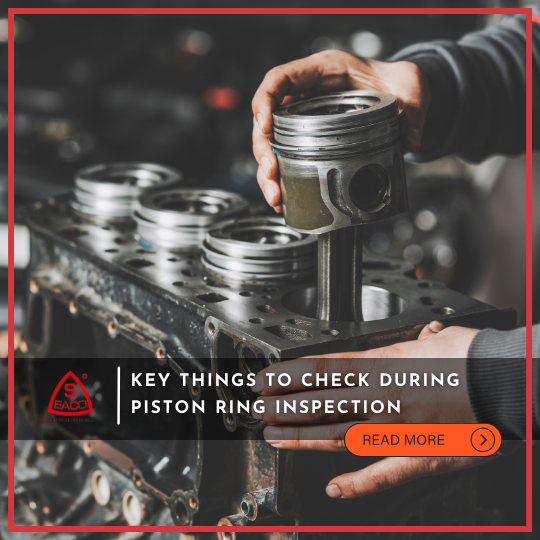NEWS
Key Things to Check During Piston Ring Inspection

Key Things to Check During Piston Ring Inspection
Piston ring inspection is a critical task that helps determine if the piston rings are still working properly. It is often followed by either replacing or cleaning piston rings, the first one being recommended if the rings are already worn out or broken.
In a 2-stroke cycle engine, the port that contains the top ring is often at higher position compared to the top ring groove of a 4-stroke engine.
What Happens During Routine Piston Ring Inspection
In the normal scavenge space inspection, a screwdriver is used for pressing the piston rings. It is carried out to check the tension or spring action of the rings. It also helps determine whether or not the ring is broken. There will be no spring action at all if the ring is already broken.
The piston rings are also inspected for freeness in grooves since these could get stuck because of carbon deposits and may soon break that will result to a damaged liner.
It is also important to check the clearance between the groove and the ring. The wear will also be calculated. There is also a need to check the ring for scuffing damage and marks. There will also be an assessment of the overall condition.
What Happens During Major Piston Ring Overhaul
The piston rings during a major overhaul are completely changed and replaced with a brand-new set. However, it is important to consider the following for scrapping the piston rings:
- If the rings’ axial height is decreased and there is a large clearance in the groove and rings.
- If the layer of chrome is damaged or peeled off.
- If the rings are stuck inside the groove.
When conducting an overhaul, it is important to properly remove the carbon deposits from the grooves and inspected for damages in the ring grooves.
Prior to putting back the piston rings, this must be rolled rounded first in the grooves. During this process, the ring will be moved entirely within the grooves.
Through this test, it allows the checking that all the grooves are much more in-depth compared to the ring’s radial width.
While the piston is inserted in the liner with the replaced rings, the sufficiently lubricated piston ring compressor tool is used to make sure that the rings don’t get stuck to the liner face as they go into the combustion chamber.
The rings will then be placed within the worn liner while checking the butt gap. For the small piston rings, a piston ring filer can be used for treatment of the ends. As for the marine engines, there is a need to send the rings for reconditioning to the shore workshop if there is an unusual butt gap.
As the rings are put back, these need to be inspected for markings to determine which part is down or up and check various markings for various positions.
The correct tool, such as the use of a ring expander, should be used for putting back the rings. The clearance between the groove and ring is also checked using the feeler gauge.
The old ring’s radial and axial clearance is also inspected and noted to evaluate the amount of wear for several running hours.


